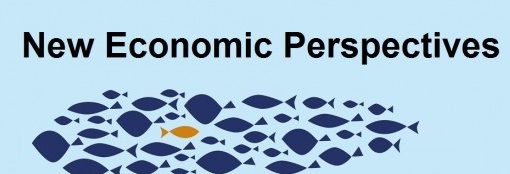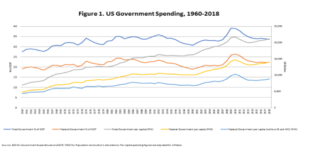By Michael Hoexter, Ph.D. In the final section of this essay, I will look at the combined effect of the conflicts and collusion between the two types of Machiavellian political actors that dominate the higher offices and influential media organizations in the United States and to a lesser degree in other countries today. Looking solely and narrowly at one party or the other encourages myopia and the creation of a “voodoo doll” in which all manner of evil is thought to be embodied, i.e....
Read More »21st Century Machiavellians 3: The Clash of Machiavellians, the Billionaire Class, and an Anti-Machiavellian Politics
By Michael Hoexter, Ph.D. In the final section of this essay, I will look at the combined effect of the conflicts and collusion between the two types of Machiavellian political actors that dominate the higher offices and influential media organizations in the United States and to a lesser degree in other countries today. Looking solely and narrowly at one party or the other encourages myopia and the creation of a “voodoo doll” in which all manner of evil is thought to be embodied, i.e....
Read More »21st Century Machiavellians 3: The Clash of Machiavellians, the Billionaire Class, and an Anti-Machiavellian Politics
By Michael Hoexter, Ph.D. In the final section of this essay, I will look at the combined effect of the conflicts and collusion between the two types of Machiavellian political actors that dominate the higher offices and influential media organizations in the United States and to a lesser degree in other countries today. Looking solely and narrowly at one party or the other encourages myopia and the creation of a “voodoo doll” in which all manner of evil is thought to be embodied, i.e....
Read More »21st Century Machiavellians 2: The Gaslighting, Neo-Fascist Gangsters of the Republican Party
By Michael Hoexter, Ph.D. While describing the machinations of the Democratic Party Establishment creates an repellent vision of political scheming and ethical compromise, today’s Republican Party is a few qualitative steps more repellent, more reactionary, and at the same time simpler to describe. To compare and create a realistic vision of the current American political landscape, one has to be able to conceive of both “bad” and “worse”, i.e. degrees of moral compromise and turpitude...
Read More »21st Century Machiavellians 2: The Gaslighting, Neo-Fascist Gangsters of the Republican Party
By Michael Hoexter, Ph.D. While describing the machinations of the Democratic Party Establishment creates an repellent vision of political scheming and ethical compromise, today’s Republican Party is a few qualitative steps more repellent, more reactionary, and at the same time simpler to describe. To compare and create a realistic vision of the current American political landscape, one has to be able to conceive of both “bad” and “worse”, i.e. degrees of moral compromise and turpitude...
Read More »21st Century Machiavellians 2: The Gaslighting, Neo-Fascist Gangsters of the Republican Party
By Michael Hoexter, Ph.D. While describing the machinations of the Democratic Party Establishment creates an repellent vision of political scheming and ethical compromise, today’s Republican Party is a few qualitative steps more repellent, more reactionary, and at the same time simpler to describe. To compare and create a realistic vision of the current American political landscape, one has to be able to conceive of both “bad” and “worse”, i.e. degrees of moral compromise and turpitude...
Read More »21st Century Machiavellians 1.2: Elites View the Democratic Party as a Containment Vessel for Popular Discontent
(This is a 3-part essay divided here into a total of 4 installments, with the first part divided into two) By Michael Hoexter, Ph.D. Attracting Popular Discontent The basic structure of concentric circles of the discourse and ideological “space” of a political party or partisan organization, described in the foregoing could apply to almost any political party or for that matter any group with a relatively passionately held set of beliefs against which they believe others are opposed. ...
Read More »21st Century Machiavellians 1.2: Elites View the Democratic Party as a Containment Vessel for Popular Discontent
(This is a 3-part essay divided here into a total of 4 installments, with the first part divided into two) By Michael Hoexter, Ph.D. Attracting Popular Discontent The basic structure of concentric circles of the discourse and ideological “space” of a political party or partisan organization, described in the foregoing could apply to almost any political party or for that matter any group with a relatively passionately held set of beliefs against which they believe others are opposed. ...
Read More »21st Century Machiavellians 1.2: Elites View the Democratic Party as a Containment Vessel for Popular Discontent
(This is a 3-part essay divided here into a total of 4 installments, with the first part divided into two) By Michael Hoexter, Ph.D. Attracting Popular Discontent The basic structure of concentric circles of the discourse and ideological “space” of a political party or partisan organization, described in the foregoing could apply to almost any political party or for that matter any group with a relatively passionately held set of beliefs against which they believe others are opposed. ...
Read More »STATEMENT: House Budget Committee, “Reexamining the economic costs of debt”, Nov 20, 2019
By L. Randall Wray This blog is based on the testimony I provided to the US House of Representatives. My written statement will be published in the Congressional Record (a version is also at the Levy Economics Institute: http://www.levyinstitute.org/publications/statement-of-senior-scholar-l-randall-wray-to-the-house-budget-committee. The full statement was co-authored with Yeva Nersisyan. I will argue that the Federal Government’s deficit and debt are not so scary as we are led to...
Read More » New Economic Perspectives
New Economic Perspectives

